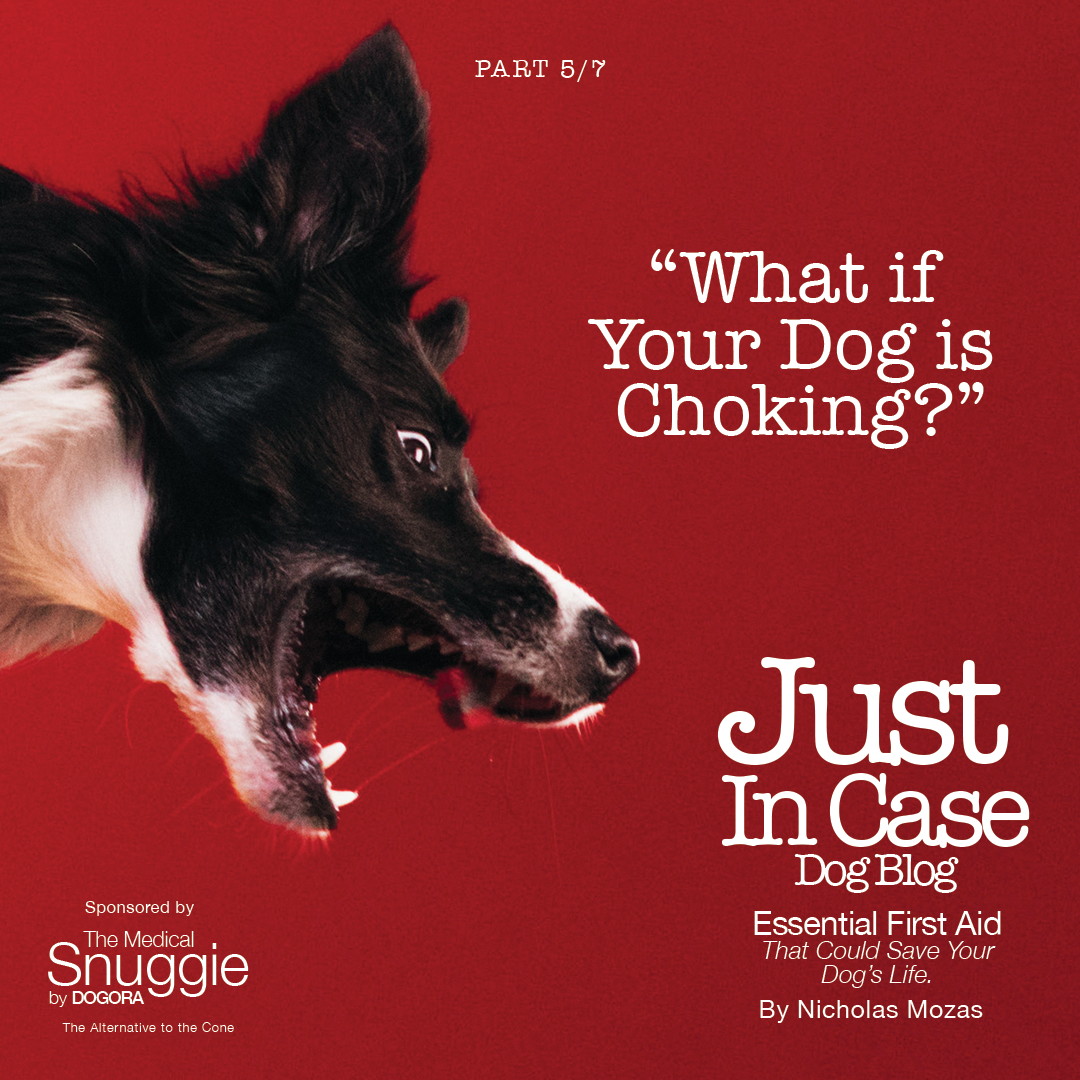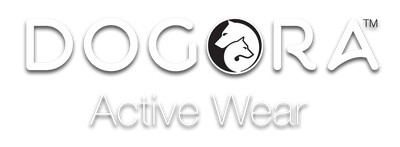What if Your Dog is Choking? - Part 5

As an owner, loyal companion, and family member to our best friends, we are their first responders prior to reaching the emergency clinic or animal hospital. This is the fifth of a series of posts that will make you better prepared to handle many emergency situations that you might encounter with your dog.
What if Your Dog is Choking?
Unfortunately, due to a dog’s curiosity, drive and hunger, they can frequently choke, whether it be from chewing on a plastic bottle, sticks, toys and even their own food when eating very quickly. However, there are some very common toys and treats we can avoid, therefore reducing the risk of choking.
Marrow Bones, Rubber Balls, Small Toys, Rawhides, and Sticks can lead to choking.
If your dog is choking, open their mouth while keeping their flesh over their canines so that they are less inclined to close their mouth. Look down your dog’s mouth and, if you see the object, reach inside and pull it out. If you cannot see the object, move around behind your dog, put your hands underneath their belly, and lift them up, leaving their front feet on the ground.
Be sure to look in your dog’s mouth to see if the object has been dislodged. If this does not work, clasp your hands together like a fist and move your hands up to where their abdomen stops and rib cage starts. Always have someone give the clinic a call to get professional advice while responding.
If you notice your dog was chewing on sticks, they can sometimes get pieces lodged between the bridge of their mouth and throat. It will look like your dog is scratched. Remove any visible splinters and call your Vet for more advice.
Exposure to Toxins
Any chemical that is harmful to humans is very dangerous to dogs. Some of the key household things we have in our homes that could lead to blood toxicity, nerve damage and much worse, include, but are not limited to:
If your dog seems stable, try to identify the toxin and how the dog could have come into contact with it to avoid it from happening in the future. However, if your dog appears sick and you’re not sure the duration of exposure, seek medical treatment immediately.
Early intervention can be lifesaving, especially if the toxin can be removed before too much time has passed. Call your veterinary clinic for advice and next steps. Never give your dog any home remedies without contacting your Veterinarian first. If the poison occurs after hours, call your local animal emergency clinic or hospital.
When in this situation, you can expect one of these scenarios:
- If your dog’s skin came into contact with some exterior toxin, the vet may ask you to give your dog a bath. Be sure to use a pet-friendly shampoo.
- You may be told to rush your dog to the nearest clinic. Remember to bring whatever evidence you have of what could have been ingested.
- A professional may ask you to induce vomit. This can be done with the help of hydrogen peroxide. Be sure to make sure it is not expired and it’s best if it is a fresh bottle. It will be administrated via their mouth. Be sure to receive Veterinarian guidance for the amount to give according to your dog’s body weight.
- They will have you call the Poison Control hot lines for guidance. This information should be in your K9 First Aid Kid -- mentioned in Part 2.
Be mindful and try to prevent toxin exposure whenever possible. Keep all items that can be a risk to your dog out of sight and reach.
Next week, we’ll look at First Aid treatments for seizures and bee stings.
Nicholas Mozas is Founder and CEO of DOGORA. He is a graduate of the University of Guelph in Biological Science and holds an M.Sc. in Neutragenomics. Nicholas managed an Animal Hospital after graduation, gaining a better understanding of pets’ and owners’ needs. Find out more at www.dogora.ca.
Feel free to forward this blog post to your dog owner friends to enjoy!

